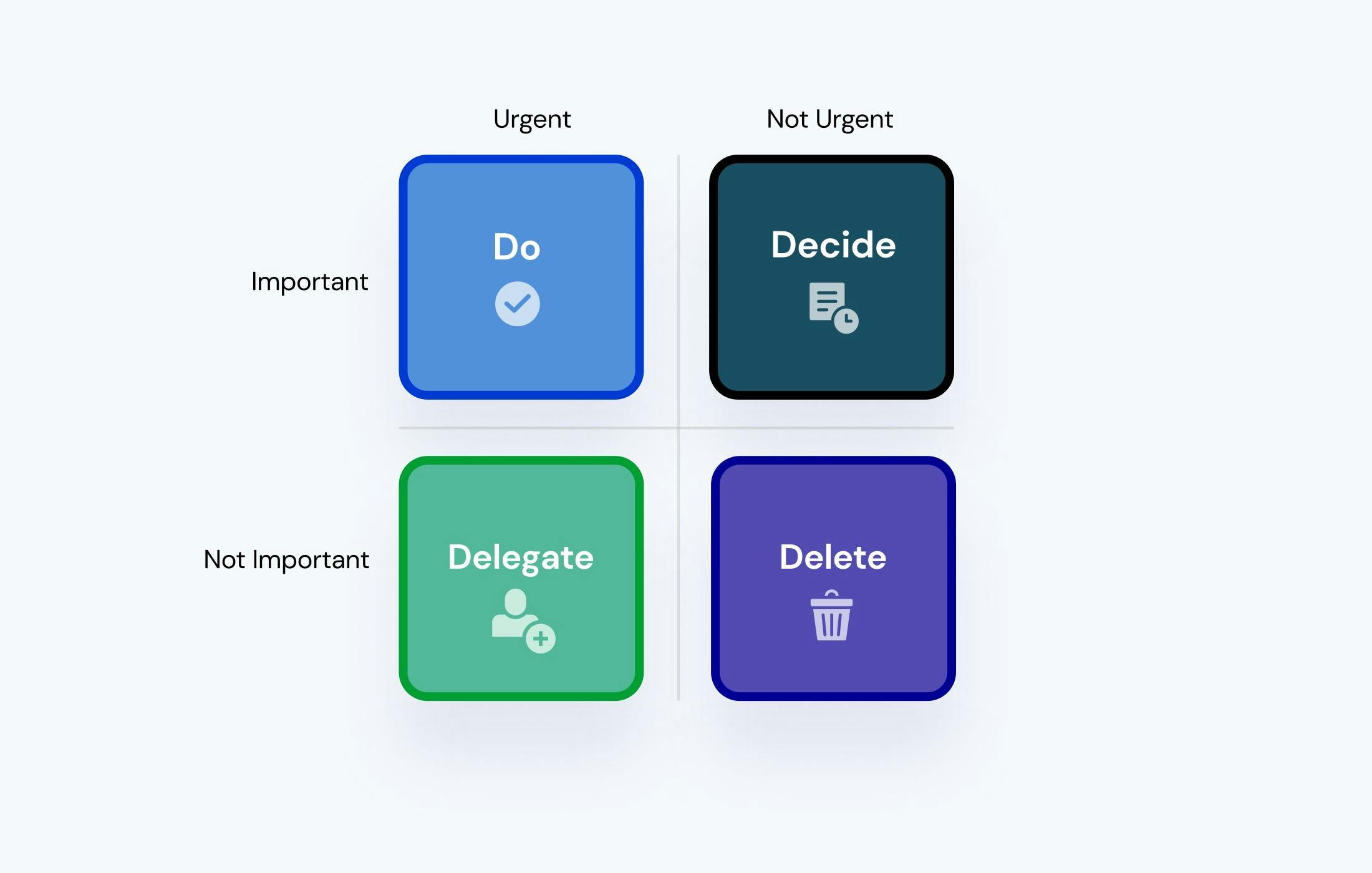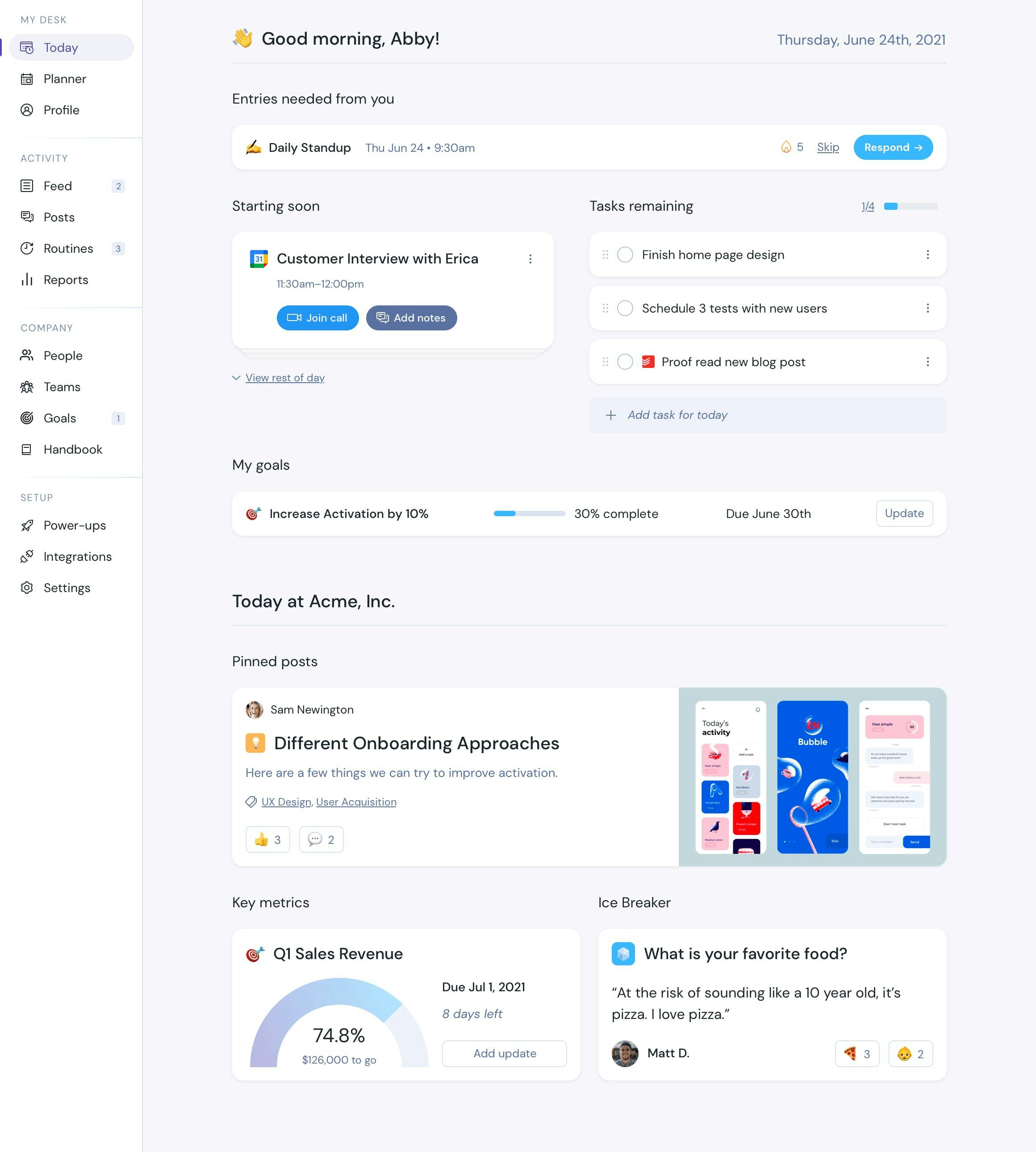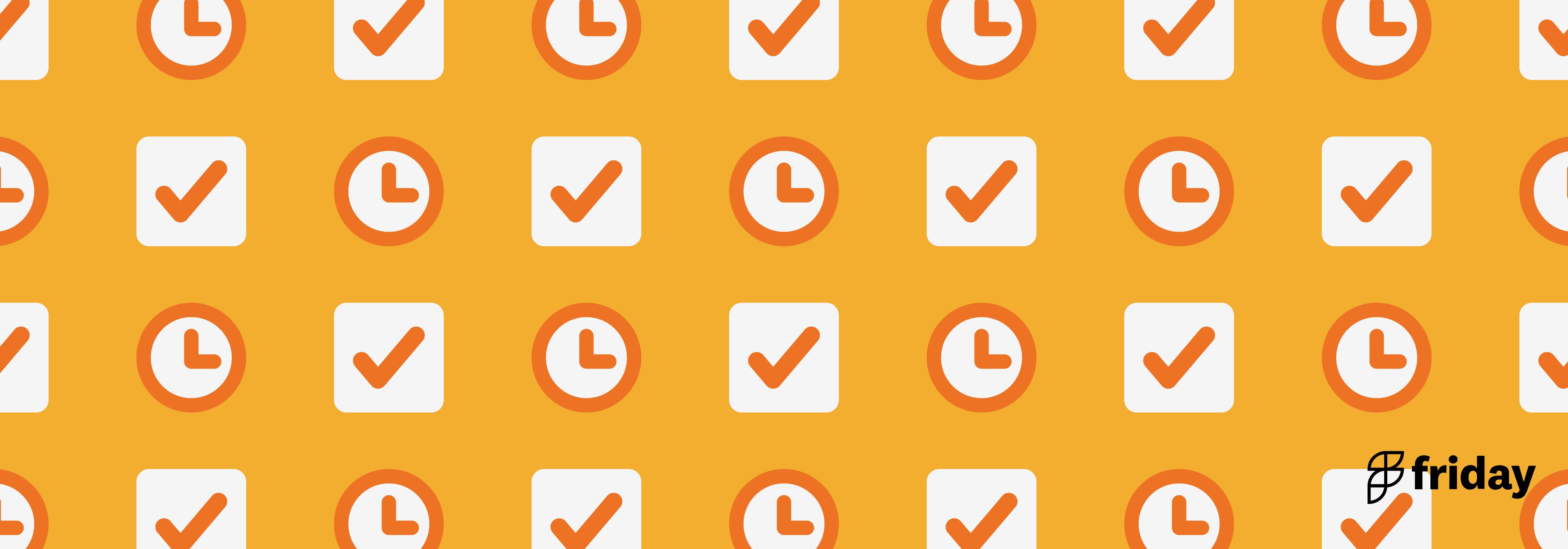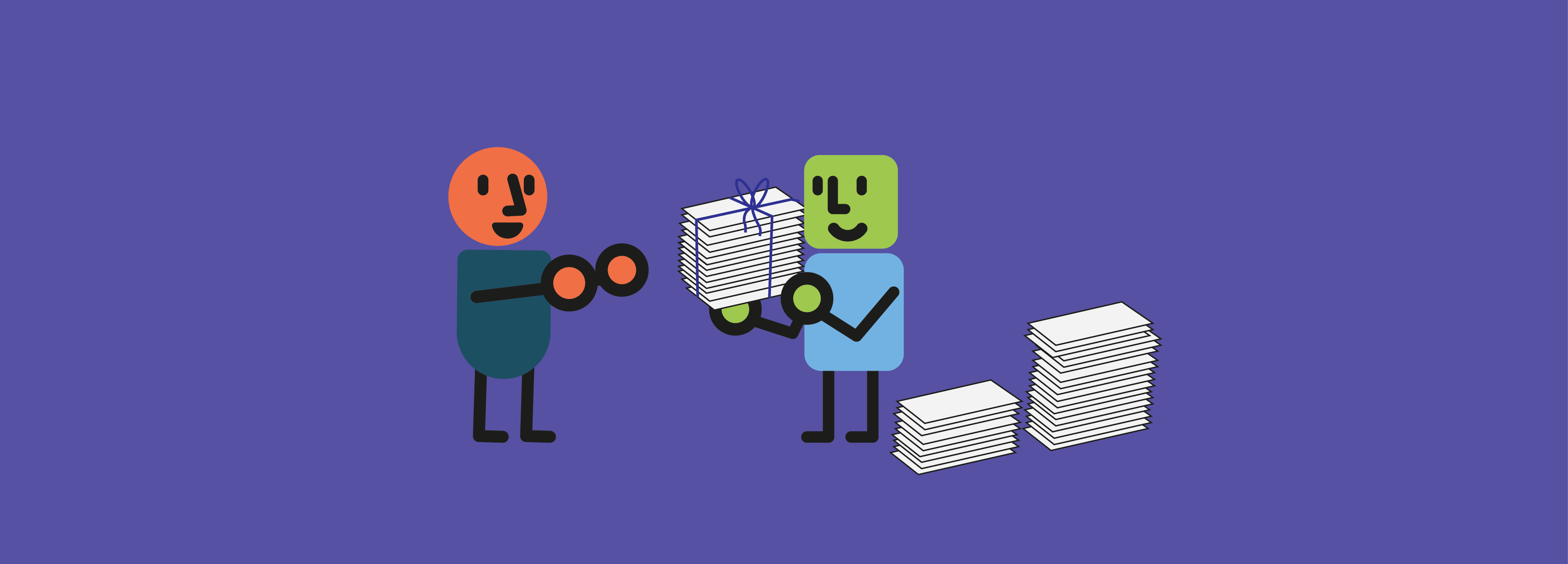10 Task Management Tips & Skills To Get More Done Today

So, you’d like to effectively manage your tasks and time, eh? Good news, there are numerous ways you can help yourself get more done throughout the day. Like a lot of problems, a lot can be accomplished with a healthy dose of forethought and subsequent preparation.
There’s no shortage of professional productivity tips and online task management tools, yet the most important factor is finding a system that works for you, one which makes it easier to form habits that lead to stronger goal commitment and faster, yet productive work.
If you’re looking for some personal productivity inspiration or useful project management suggestions, here are our 10 task management tips that help you find an effective, enjoyable work process that lets you get more done.
How do you manage tasks effectively?
1. Break up big projects into smaller tasks
One of the easiest and most significant things one can do before undertaking a large project is to break it up into smaller parts. It may seem counter-intuitive to give yourself “more” tasks, but it’s really just a way to visualize a large-scope project, which can be overwhelming and stress-inducing, in more manageable and (more importantly) measurable chunks.
It’s vital to recognize the difference between the projects and create actionable plans in a form of smaller chunks to achieve it.
Smaller tasks with clear completion criteria can make a project seem less daunting and boosts motivation, effectively giving you greater confidence in your abilities beforehand, and then reaffirming them through lots of small victories along the way.
If your goal is to “be fluent in Spanish”, it would hardly do you much good to blindly stare at such an imposing goal. Instead, it would be much more productive to start with “introduce myself,” make the process habitual, “learn 10 new words a day,” and ultimately a series of achievable milestones, each one bringing you closer to your goal.
2. Create a priority to-do list
As intelligent a being we may be, it’s insanely difficult to mentally juggle many ideas simultaneously. Having your tasks as an easily accessible record helps you stay on top of things. A to-do list can be as simple as a piece of paper and some rapid logging, a digital planner, or even specialized project management software. Regardless of whether it’s physical or digital, form the habit of adding items as they occur to you.
Creating a priority system brings added benefits, namely a clearer view of your most critical tasks, but also a sense of relief from knowing that you’re working on the right focus.

There’s quite a few priority to-do list approaches, but the Eisenhower matrix is a notable one, allowing you to categorize tasks into four quadrants:
1. Urgent and important: Do it immediately
2. Important, but not urgent: Schedule time for it
3. Urgent, not important: Delegate it
4. Neither urgent nor important: Forget it
It may seem obvious that the most important tasks need completing first, but by collating your jobs and targets, you can efficiently manage your time, able to stay on track and get the pressing tasks out of the way.
3. Keep your tasks in one place
Once you’ve decided on an effective method for recording tasks and responsibilities, make sure you’re keeping it all in a single planner, otherwise there’s no real benefit to creating the to-do list at all. It gets complicated when your day is scattered here and there, in two notebooks, a phone, a calendar, a diary and a carrier pigeon.
Unifying everything under one planner is fundamentally faster because it eliminates the time wasted when physically switching between modalities, but also the cognitive time taken by the brain cognitively resetting, too.
One place means one focus point, so it’s vastly easier to manage work and plan life. Friday's planner allows users to add tasks conveniently and schedule a block of time to complete them (with reminders!), making you that much likelier to commit to your goals.
4. Set time limits and deadlines
As American writer Rita Mae Brown said, “A deadline is negative inspiration. Still, it's better than no inspiration at all.” It’s true; they aren’t amazingly fun but rather a fact of life. As painful as they may be, clear timeframes boost productivity.
Research has shown that we work harder when we are aware of deadlines, whilst the Yerkes–Dodson Law has suggested – for over a hundred years – a clear relationship between pressure and performance.
When it comes to setting a deadline, be sure to leave sufficient time to accommodate healthy working practices. A deadline that requires you to work and work endlessly is, to put it nicely, overly-ambitious or, not so nicely, dangerous.
Never sacrifice break times for an unrealistic workload, lest you begin to lose interest and resent your work and goals. The importance of not only being physically away from work, but also psychologically detached has clearly been shown, so do not set yourself up for failure with impossible expectations.
It’s difficult to set a deadline on a project with no end-date in sight. Yet, it’s as simple as just picking a finish line you’re comfortable with. In doing so, you feel as if you’re constantly working towards a tangible end, boosting motivation by applying a healthy amount of pressure.
However, deadlines are not the only kind of time limit you need to be concerned with, but also work-length. Something like the Pomodoro technique, a brilliantly basic work-rest pattern, keeps you focused by providing your brain with adequate recovery time. An alternative technique is the 52/17 philosophy, which involves working for 52 minutes and taking a 17 minute break (reminiscent of our natural 90/20 minute ultradian rhythm).
By “rewarding” yourself with a break, you can maintain motivation to get the tasks completed, especially useful when faced with extensive and complicated projects where prolonged focus is needed.
5. Start with small tasks
Once you have created your task list, selected a single place to consolidate your tasks and set realistic deadlines (with a decent work-rest ratio), you can get cracking with it! Many people feel that starting with a small task is a fast and easy win, a quick hit of self-assurance to better situate oneself in the palace of productivity.
Oftentimes getting started on a project is the hardest part, so starting with smaller tasks and working your way up will make you feel accomplished and will build your confidence. It gets your momentum going right away to help you focus and commit longer.
6. Eat the frog
In stark contrast to the previous point, others find it better to start with the most difficult or cumbersome tasks, effectively getting them out of the way, i.e. eating the frog. For those who detest the looming intimidation of tasks, it may be better to tackle the big things first.
Coffee may be king in the early morning, but eating the frog will likely have you staying more productive throughout the day. Vanquishing the most difficult task early on sets a positive tone and a better atmosphere in which to nurture your productivity.
7. Focus on one task at a time
Whichever tasks you tackle first, you should only be focusing on one at a time. As ancient scholar Publius Syrus is quoted, "to do two things at once is to do neither," two thousand year old advice that still applies. Our brains do best when focusing on a single task, while the speed of multi-tasking is often mere fallacy, backed up by numerous studies that suggest it to be as much as 40% slower.
It’s often claimed that Leonardo Da Vinci could write and paint at the same time, or even scribble away in two languages simultaneously. While historians do now agree Da Vinci was ambidextrous, this ability to do two things at once is most probably an exaggeration. Even for us modern folk, it’s fervently difficult to focus and get each task finished when we try to do multiple things together.
Multitasking is a great way to accomplish many low-concentration tasks at one time, but there’s simply no application for it with high-attention work; any attempt to do so will rapidly drain your energy.
Try task batching to complete tasks of similar focus types, or use Friday Focus Time to minimize distractions, ultimately allowing you to get more done.
Focus on the task at hand, stay away from distractions and complete as much as you can in one work period. Remember to take a break, even for a moment, to mentally recharge before returning to work with increased energy and alertness.
8. Limit the number of tasks per day
“Rome was not built in a day,” as the saying goes, and neither are intricate projects and long-term ambitions. Similar to how unrealistic deadlines can result in unhealthy work practices, so too can doing excessive amounts of work.
A long list of incomplete tasks can be overwhelming in any case, but over-exerting yourself will probably make you feel worse, not better. The trick is skillful scheduling, whereby you can allocate the perfect amount of work to the day. Time blocking and the Ivy Lee method are excellent ways to consider that lengthy to-do list in terms of time-based sections.
If you can successfully implement the other time-management tips we’ve discussed, you’ll surely have no problem achieving a great deal, leaving you entirely satisfied and guilt-free when signing off for the day.
9. Reward yourself when you finish a task
Here’s a fun one... rewards! The psychological impact of continually pushing through task after task is that you eventually become both overburdened and underwhelmed. When you do complete a step, be it a subset of tasks or a section of a bigger project, definitely find some way to reward yourself. It could be a crossword puzzle, a luxurious drinks order, or even a nice stroll in the park.
Breaking up work with rewards does two main things. First, they act as incentives to make you work faster towards a goal, like a sort of prize system to diminish distraction; second, they integrate very nicely into a healthy work-rest philosophy, boosting your motivation, which is especially crucial when you’re having a hard time getting to the end.
Even checking-off a task on the list can be considered as a reward, allowing you to acknowledge the progress you’ve made through the physical action (that feels amazing, we might add) of marking an item complete. Checking-off makes you feel more accomplished, and it’s fiendishly addictive, making you more likely to complete another task, and then another!
10. Review and reflect on your progress
One often overlooked element of better productivity is the time taken to self-analyze your day; what you achieved, your sources of distraction and work you’re proud of are all valuable things to consider. You are also free to use a mood tracker to see how the day affected you emotionally.
Write down the tasks you’ve finished, thinking about what you learned about yourself and your optimal working techniques and conditions. In the same way checking-off makes you feel accomplished, an end-of-day review allows you to observe strengths and weaknesses and actively take steps to continuously develop your productivity practices.
In Friday, you can add a personal routine that prompts you with certain questions at the end of each day, including questions about how your work went and how productive you felt. This is totally customizable, so add whatever questions you want!
On occasion you will have tasks that you aren't able to complete immediately, or even ones that are seemingly undoable. Don’t throw that out, you can still use it! Keep tasks of this nature on a separate list, or as part of a future log, for you to review when you’re better equipped to handle them.
A list such as this is just one of the many review methods you can use, but ample research shows the undeniably advantages of self-assessment. Becoming more active in self-regulation can also lead to better self-esteem and self-confidence. Self, self, self!
Task Management Demands Consistency
Whichever of these task management tips you choose to adopt, a crucial factor is consistency. The very fact that you’d like to better manage time, is great, but sadly it isn’t enough. The only tried and true way is steady repetition of effective actions that naturalize as pro-productivity habits.
You often hear the phrase “time is money,” but that doesn’t do time much justice at all; time is life, love, passion, pursuit, friendship, work and play. Time-management, then, is the acknowledgement that this precious, finite time does not pass but sprints, that we need to properly organize it to achieve our ambitions and lead a successful, gratifying life.
Knowing exactly how to organize a work day, or how to keep up with tasks, can be quite tricky. However, any attempt at a behavior or system that optimizes your time is a brilliant thing... Of course, if you need a little help from task management tools like Friday, our door is always open.
Win the Workday with the Friday Daily Planner
Friday is your home for work.
Your team can see meetings and tasks in one place, pulled from tools you already use. You can use widgets to customize your view, and better allocate your time to help you focus on the most important tasks.
At Friday, you’ll have a simple and automated way to share regular updates about what you are working on, enabling the regular flow of information without another meeting. Beyond a daily planner, you also get more to keep your team working together asynchronously -- like icebreakers, goals, employee milestones, a company handbook, and people profiles!

Best features:
- Try out Posts to take notes, ideas, meeting agendas, company announcements, and more.
- Integrates with Slack, Microsoft Teams, Zoom, Google Meetings, & many of the top project management tools.
- Start automatic team updates to reduce your time on Zoom
- Get the daily planner with your team to see a to-do list and schedule in one place
Pricing:
- Free Forever. To-Do List + Calendar Sync + Check-ins + Posts + Unlimited Users.
- Individual Pro: $4 per month. Planner View + Task/Calendar sync + Posts + Goals + Reporting
- Teams: $6/per person /month. Planner View + Posts + Task/Calendar sync + Check-Ins + Reporting + Kudos/Icebreakers.
- Company/Enterprise: A modern intranet & business communication tool customized to your business needs
Use Friday for free. No credit card required.



